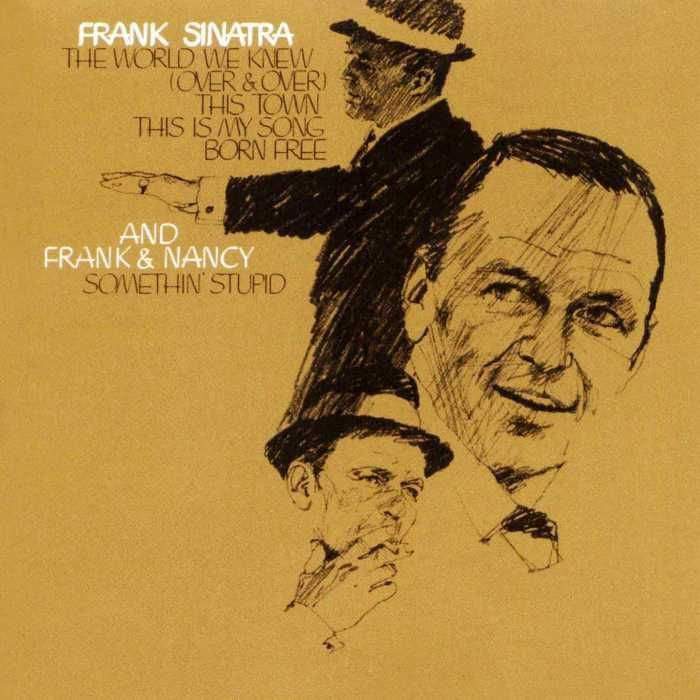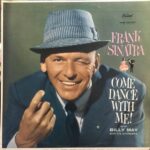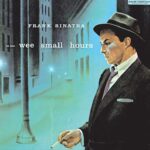
THE WORLD WE KNEW
By Mahnuel Muñoz
On September 16, 1967, the album “The World We Knew” entered the United States charts, a new attempt by Frank Sinatra to refresh his sound, a desire especially accentuated during the second half of the 1960s. The album, Despite including the highly successful single “Something Stupid“, it was not well received by the public, perhaps because there was no specific audience to whom this work was directed.
Harmonizing commercial and artistic successes was increasingly difficult for Sinatra, because the popular music of the time did not seem made for him. The erratic nature of his production between 1966 and 1970 offers a reflection of the turbulent personal phase that he went through, led by his failed marriage to Mia Farrow, the death of Martin Sinatra and his own awareness of the inexorable passage of time.
“The World We Knew” somehow follows the line drawn by the album “That’s Life” (1966), but it lacks its sonic cohesion and its vitalist tone; From the title and its languid cover, contrary to the colourful trends of the time, it conveys an atmosphere of confusion and disenchantment. His repertoire reveals a wonderful singer who does not know who or what to sing to beyond his own memories.
With five arrangers for ten songs, the album is like a Marx Brothers cabin in which he has a hard time fitting in; The best pieces are those that look back in the eye of the psychedelic hurricane of the summer of love, (“The World We Knew“, “You Are There” and, above all, “Drinkin’Again“) and “the disillusionment” would have been an interesting approach that, however, fades away with the frivolity of the most recurrent and disheveled pop, despite Sinatra’s strenuous effort to put his stamp on it.
The main value of “The World We Knew” is its quality as a chronicler of those days of the artist’s struggle against the human being, and it deserves to be remembered for how well it fits into the present; In the air there floats a smog of a broken dream, of dismantled magic that makes us miss a not-too-distant past but that seems as irrecoverable as the golden age of jazz. With our respective colorful masks and stupor, we wander around imagining faces, aromas and textures, knitting hatred and vomiting rage like incognito punks, calling without judgment the bells of escape and compromising our essence after every slam of the door. Read the lyrics of the songs and they will seem to be written to the rhythm of the news headlines and your own longings. Once again, in these bad times, even with one of his least substantial works, The Voice manages to be a crucial part of our everyday soundtrack.
TRACK LIST
“The World We Knew (Over and Over)” (Bert Kaempfert, Herbert Rehbein, Carl Sigman) – 2:50
“Somethin’ Stupid” (con Nancy Sinatra) (Carson Parks) – 2:45
“This Is My Love” (James Harbert) – 3:37
“Born Free” (Don Black, John Barry) – 2:05
“Don’t Sleep in the Subway” (Tony Hatch, Jackie Trent) – 2:22
“This Town” (Lee Hazlewood) – 3:05
“This Is My Song” (Charlie Chaplin) – 2:30
“You Are There” (Harry Sukman, Paul Francis Webster) – 3:31
“Drinking Again” (Johnny Mercer, Doris Tauber) – 3:13
“Some Enchanted Evening” (Richard Rodgers, Oscar Hammerstein II) – 2:34
















